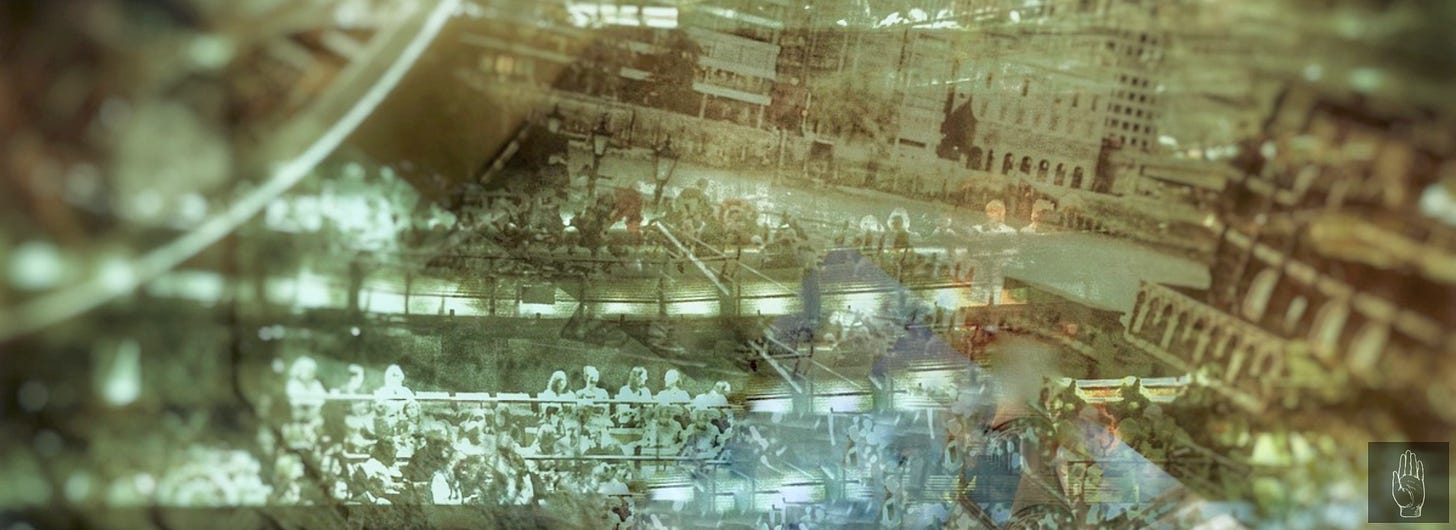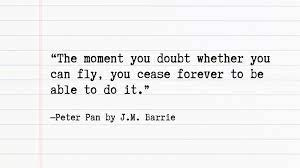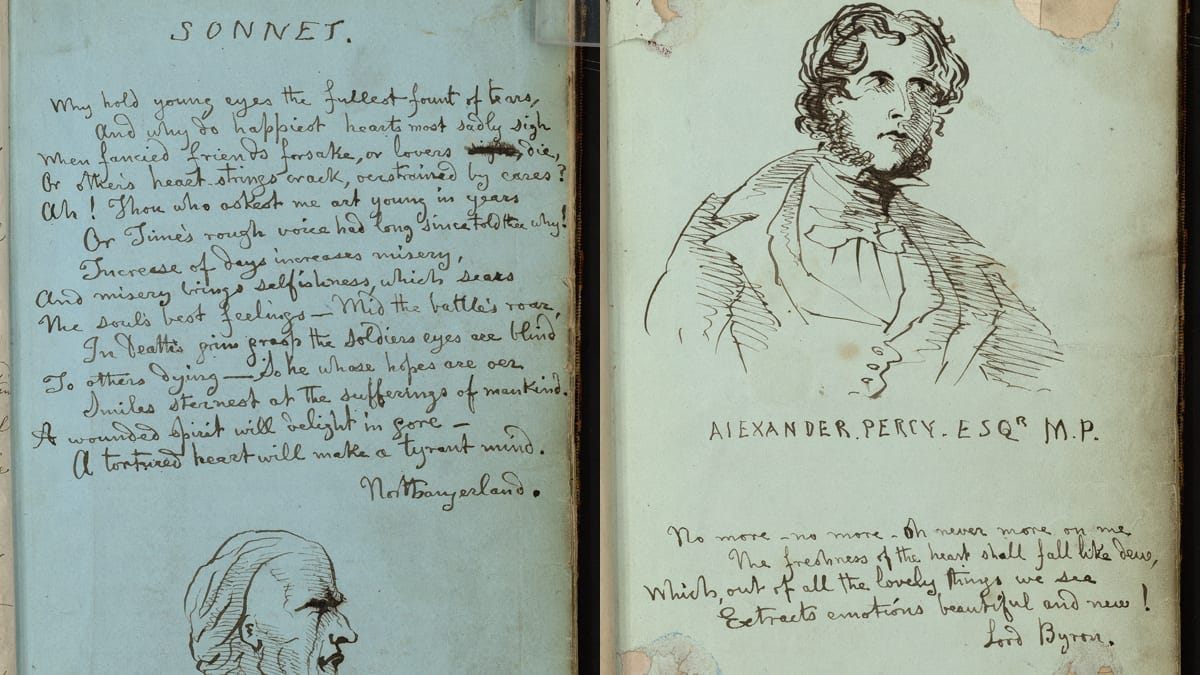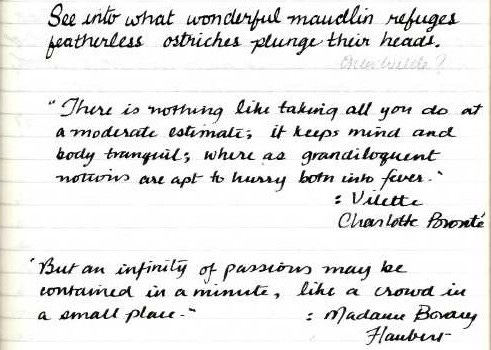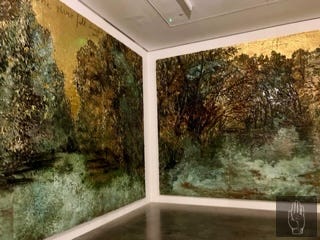WRITING WITH YOUR LEFT HAND
Greetings from the UK! I wanted to mention that I've moved here to work on a research project for some months at King’s College, Cambridge. I could go on about how different my life is here, but that’s another story for another time. Suffice it to say, I’ve been a bit behind due to doing some settling in but hope to be back on track.
WHAT IS COMMONPLACING?
Now, on to our subject for this time - I was surprised when I mentioned “commonplacing” to a class full of writers in the US, and the majority had not heard of the practice. So, I thought in this world of digitization and AI, I thought it might be nice to hark back to a tradition that is hundreds of years old and point out its usefulness, even today. Transcribing interesting or inspirational passages from one’s reading and assembling a personalized encyclopedia of quotations as a way of compiling knowledge for future reference can become a wonderful personal archive. I suppose you could say commonplacing is the predecessor to the act of data management today.
Like collecting pressed flowers, personally curated commonplace books become a go-to depository of favorite ideas and words that inspired you and might be useful in your work. With each re-reading, you are likely to find new ideas.
When I did a quick internet search, some folks described it as a journal, but it’s not that. You are not putting your thoughts down, but collecting the thoughts and quotes of others. Nothing is original but the action of you bringing them together. And that, in itself, is meaningful.
THE ORIGINS OF COMMONPLACE
The word “commonplace” can be traced back to Ancient Greece, where a speaker in law courts or political meetings would keep an assortment of arguments in a “commonplace” for easy reference, and ever since, people have been keeping Common-Place Books. They re-emerged during the Victorian Era when readers started transcribing classical fragments in notebooks. There was even a practice of writing in margins called MARGINALIA.
For many centuries, great thinkers and intellectuals maintained ongoing records of their work. Shakespeare had one where he collected all kinds of old stories and sayings to use in his plays later on. In Sonnett lXXVII he wrote:
“Look, what thy memory cannot contain
Commit to these waste blanks, and thou shalt find
Those children nurs’d, delivered from thy brain,
To take a new acquaintance of thy mind…”William Shakespeare
A commonplace book is “YOU”. You are the author of your commonplace book. It becomes a private collection of ideas and words, curated for you, by “you,” to keep, to ponder later, to draw inspiration from, in short, it can tell you a whole lot about yourself and your proclivities. After all, who knows where the constellation of your idiosyncrasies can lead? Creating such a collection helps you bring your different interests together, and this juxtaposition can often lead to new hybrid ideas. Besides quotations, you can also catalog found ideas that inspire you or write down overheard conversations which are always great to use as dialogue in given instances. You will soon find what works best for you and, after some time, it will just become a ritual for the practiced writer.
John Locke’s A New Method of Making Common-Place-Books
Commonplacing techniques used to be taught at universities in the past. In fact, the Yale University Library has scanned pages of historical commonplace books in its holdings, a tradition that peaked in Enlightenment-era Europe and America, particularly in England.
In 1706, John Locke (1632–1704) published a book called: A New Method of Making Common-Place-Books. According to author Nicholas Basbanes:
“Locke gave specific advice on how to arrange material by subject and category, using such key topics as love, politics, or religion. Commonplace books, it must be stressed, are not journals, which are chronological and introspective.”
Check out the whole book at: https://iiif.lib.harvard.edu/manifests/view/drs:13925922$1i
FAMOUS THINKERS WHO KEPT
COMMONPLACE BOOKS
“For, what though his head be empty, provided his Commonplace book be full...”
— JONATHAN SWIFT
WRITING EXERCISE -
“CREATING A COMMONPLACE BOOK”
In this exercise, we’ll look at various techniques to get started. We’ll also consider whether your commonplace book should be DIGITAL OR PHYSICAL and take a look at some of the digital apps that are available, including their benefits. Either way, keeping a commonplace book by your desk is a great practice, and it doesn’t matter whether you’re a writer or not.
PODCAST OF THE ABSURD -
CARIDAD SVICH
Coming Soon: Look out for our next podcast with:
CARIDAD SVICH received a 2012 OBIE Award for Lifetime Achievement in the theatre, a 2012 Edgerton Foundation New Play Award and NNPN rolling world premiere for Guapa, and the 2011 American Theatre Critics Association Primus Prize for her play The House of the Spirits, based Isabel Allende’s novel. She has won the National Latino Playwriting Award (sponsored by Arizona Theatre Company) twice, including in the year 2013 for her play Spark. She has been short-listed for the PEN Award in Drama four times, including in the year 2012 for her play Magnificent Waste. Her works in English and Spanish have been seen at venues across the US and abroad, among them Arena Stage’s Kogod Cradle Series, Denver Center Theatre, 59E59, The Women’s Project, Woodshed Collective @ McCarren Park Pool, Repertorio Espanol, Ensemble Studio Theatre, Lighthouse Poole UK, Teatro Mori (Chile), Artheater-Cologne (Germany), Ilkhom Theater (Uzbekistan), Teatro Espressivo (Costa Rica), Welsh Fargo Stage (Wales), Homotopia Festival UK, SummerWorks festival in Toronto, and Edinburgh Fringe Festival/UK.
ANSELM KEIFER’S: "FINNEGAN’S WAKE"
I couldn't finish this newsletter without mentioning an exceptional exhibit I saw at the WHITE CUBE in London a couple of months ago titled FINNEGANS WAKE.
Awe-inspiring and jaw-dropping, this was the culmination of a trilogy of exhibits from the German artist. Possibly because I love the book, possibly because it felt like he had turned a book inside out and dumped all its contents into a warehouse for folks to walk through, for me, it was an unmissable event. Quotes from the book were inscribed on walls, murals of the river Liffey ran through the warehouse space in gilt gold, lead books were scattered on the floor with the heaviest of movable pages, and there was even a family portrait of the characters! The thing I appreciated most was the lightness of the whole thing, resonating with Joyces’ playfulness with language while at the same time, unearthing depths from the human soul.
I couldn’t help wondering what Joyce himself would have thought of the exhibit, but I have a feeling he would have approved. I’m not sure where the exhibit is traveling to next, but catch it if you can and, more than once if you can!
Some of the WHITE CUBE conversations with Anselm Keifer on YouTube:
MONTHLY LOTTERY

Free subscription consists of a CONDENSED NEWSLETTER
A $5 monthly subscription includes:
Unabridged NEWSLETTER
Interviews with guests on PODCAST OF THE ABSURD
IRAN MEMOIRS page access
BUNNYMAN BOOK installments
Full ARCHIVE access
Community CHAT
A chance for A FREE ONE-HOUR CONSULTATION ABOUT YOUR STORY
About
Bianca Bagatourian is an award-winning playwright whose play,
THE TIME OF OUR LIES co-produced with Viggo Mortensen, was nominated for The Amnesty International Human Rights Award at the Edinburgh Fringe Festival. THE TIME OF OUR LIES premiered at The Park Theatre, London, 2019, and told the life story of radical historian Howard Zinn, through words, movement and music.
What’s Your Story?
Everyone has a story to tell. What’s your story? The story you would like to tell? Though everyone has different writing styles and writing processes, you cannot create in a vacuum! If you’d like to discuss your play or play idea, get in touch. Whether you’re on page one or the third draft, I look forward to helping you crack your script. After reading your piece, we’ll schedule a two-hour discussion to review notes. Contact me at: BIANCABAGATOURIAN@SUBSTACK.COM. I will also recommend books on playwriting, playwriting classes and workshops online.
Here’s what award-winning poet Aaron Poochigian had to say:
“By identifying the unfulfilled potentialities of my script, Bianca turned my pipe dream into a real, performable play. In retrospect, her suggestions were what should have been obvious to me all along. Without her advice, I might have spent years stumbling around, discovering what my play wanted to be." - Aaron Poochigian





